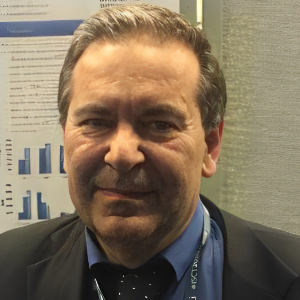Title : Laminin peptides attached to hydrogels may serve as flexible scaffolds for tissue repair
Abstract:
Tissue engineering and regenerative medicine seek innovative solutions to promote effective tissue regeneration. Laminins, essential components of the extracellular matrix, possess unique cell-adhesive properties crucial for tissue development and repair. A series of laminin derived bioactive peptides has been reported, including cell adhesion promoting peptides cell differentiation and proliferation promoting peptides, angiogenesis promoting peptides and cell migration promoting peptides. By incorporating laminin peptides into hydrogel scaffolds, our group aims to mimic the natural cellular microenvironment and enhance tissue regeneration. The combination of laminin peptides and hydrogels provides a flexible and bioactive platform that supports cell attachment, migration, and differentiation. This review explores the potential applications of laminin peptide-modified hydrogels as versatile scaffolds in tissue engineering, offering promising avenues for improved tissue repair and regeneration strategies. Furthermore, the use of laminin peptides attached to hydrogels offers several advantages in tissue repair. These peptide-modified hydrogels can be easily tailored to mimic specific tissue types by incorporating different laminin isoforms or combinations thereof. The flexibility of hydrogels allows for precise control over mechanical properties, porosity, and degradation kinetics, enabling optimal conditions for cellular growth and tissue integration. Laminin peptide-modified hydrogels can also provide a bioactive environment that facilitates cell-matrix interactions and signaling pathways crucial for tissue regeneration. The presence of laminin peptides promotes cell adhesion, proliferation, and migration, enhancing the recruitment and organization of cells at the site of injury. Additionally, these peptides can influence cell fate determination and differentiation, facilitating the regeneration of a functional tissue. The combination of laminin peptides and hydrogels holds significant potential in various fields of tissue repair, including wound healing, bone regeneration, and organ engineering. The modular nature of this approach allows for the development of customizable and patient-specific scaffolds that can be readily translated into clinical applications. In conclusion, the integration of laminin peptides into hydrogel scaffolds presents an innovative strategy for tissue repair and regeneration. This bioactive platform offers a flexible and tailored environment for cell growth and tissue integration, ultimately promoting improved outcomes in regenerative medicine. Further research and development in this field will undoubtedly contribute to advancements in tissue engineering and the eventual clinical translation of these promising technologies.



